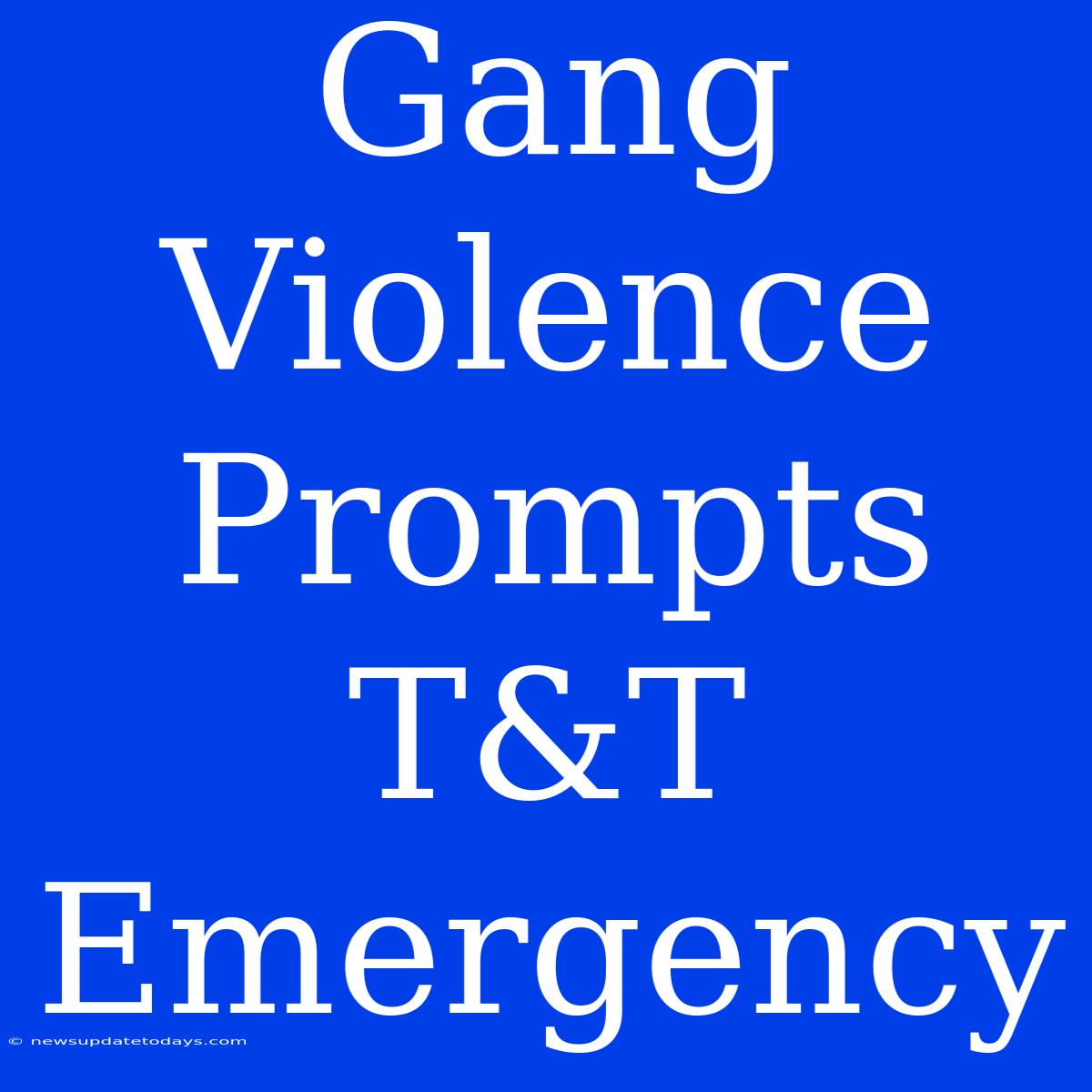Trinidad & Tobago: Gang Violence Triggers State of Emergency
Trinidad and Tobago is grappling with a surge in gang violence, prompting the government to declare a state of emergency (SOE). This drastic measure underscores the severity of the escalating crime crisis and the urgent need for decisive action. This article delves into the causes, consequences, and potential implications of this SOE.
The Escalation of Gang Violence
The recent spike in gang-related killings and violent crime has reached alarming levels, pushing the nation to a critical juncture. Reports of brazen shootings, retaliatory attacks, and escalating turf wars paint a grim picture. The sheer frequency and brutality of these incidents have shaken public confidence and fueled widespread fear. This escalating violence is not just a law enforcement issue; it's a societal crisis impacting every facet of Trinbagonian life.
Understanding the Root Causes
Several interconnected factors contribute to the current crisis:
- Socioeconomic Disparity: Deep-rooted socioeconomic inequalities, including high unemployment, particularly among young people, and a lack of opportunities, create fertile ground for gang recruitment.
- Weak Governance and Corruption: Allegations of corruption within law enforcement and ineffective governance structures have eroded public trust and hampered effective crime prevention strategies.
- Availability of Firearms: The easy availability of illegal firearms fuels the cycle of violence, making it easier for gangs to engage in armed conflict.
- Lack of Community Support: The absence of robust community programs and initiatives focused on youth development and crime prevention leaves vulnerable individuals susceptible to gang influence.
The State of Emergency: A Necessary Evil?
The declaration of a SOE grants the government expanded powers, including the ability to:
- Curfew Implementation: Restrict movement during certain hours.
- Detention Without Charge: Detain suspects for extended periods without formal charges.
- Increased Police Presence: Deploy greater numbers of security forces to high-risk areas.
While the SOE offers a chance to disrupt gang activity and restore order, concerns remain about potential human rights violations and the long-term effectiveness of this approach. Critics argue that a more comprehensive, long-term strategy addressing the root causes of crime is essential for lasting solutions.
The Road to Recovery: A Long-Term Perspective
The state of emergency is a short-term solution. Sustainable peace and security require a multifaceted approach that includes:
- Investing in Community Development: Creating economic opportunities, improving education and job training programs, and fostering stronger community bonds are crucial.
- Strengthening Law Enforcement: Investing in better training, equipment, and technology for law enforcement, while addressing issues of corruption, is paramount.
- Addressing the Gun Problem: Implementing stricter gun control measures and enhancing border security to reduce the flow of illegal firearms is essential.
- Promoting National Dialogue: Facilitating open and inclusive discussions involving government, law enforcement, community leaders, and citizens to develop sustainable crime reduction strategies.
The ongoing gang violence in Trinidad and Tobago demands immediate and sustained attention. While the state of emergency offers a temporary measure to curb violence, genuine and lasting solutions require a collaborative and comprehensive approach tackling the underlying social, economic, and political factors fueling this crisis. The future of Trinidad and Tobago hinges on its ability to address these complex challenges effectively.

